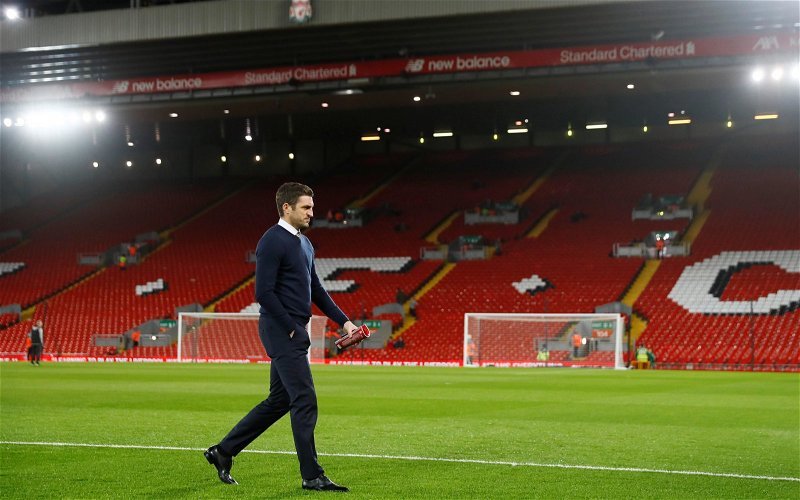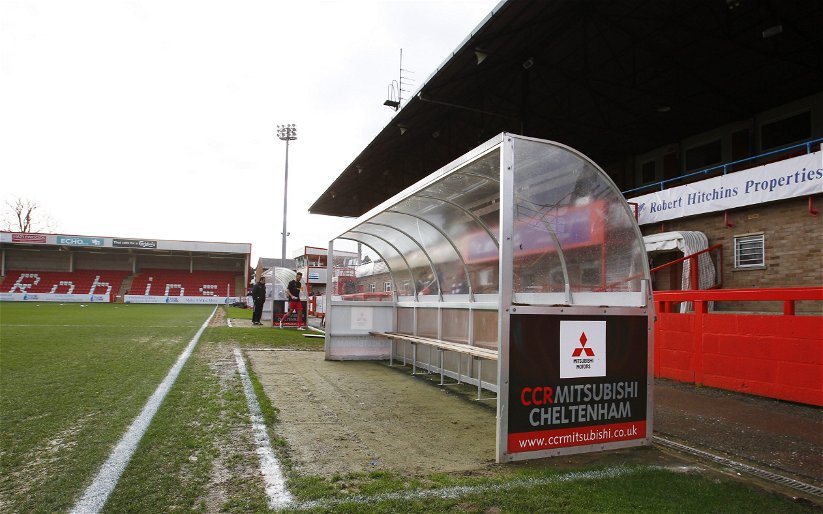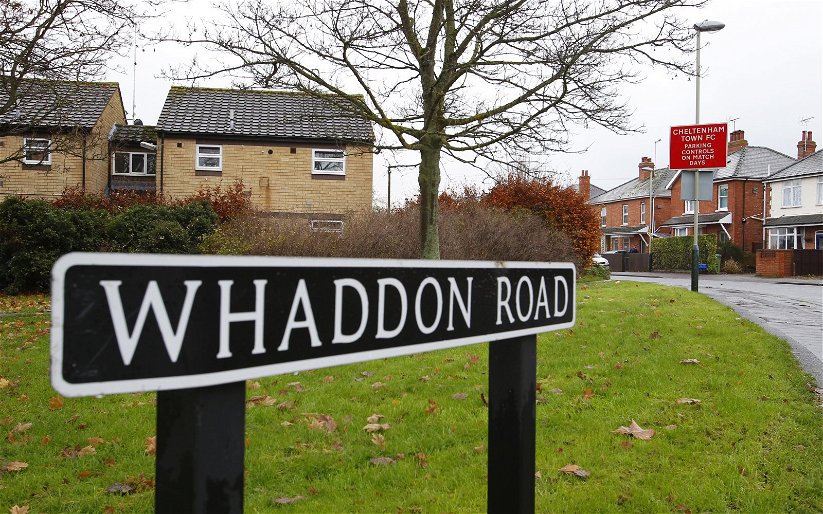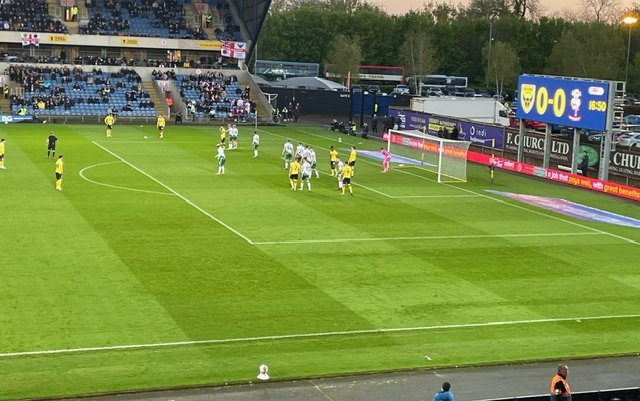In a lengthy and so far successful career in football, versatile full-back Sam Ricketts has played alongside and against some of the modern greats in the game. We could mention Gareth Bale, Michael Ballack, David Beckham, Ryan Giggs, Steven Gerrard, Kaká, Miroslav Klose, Frank Lampard, Luka Modrić, Robin van Persie, Lukas Podolski, Ronaldinho, Wayne Rooney and Carlos Tevez to name but a few. He has won promotions, championship medals, Player of the Season awards, been named in PFA Teams of the Year and appeared in three World Cup qualifying campaigns. Only 29 players have made more appearances for Wales in their history, yet he could so easily have made his mark in a completely different discipline.
Born in Aylesbury, Ricketts comes from a sporting family. Older supporters may recall his father Derek being world showjumping champion in 1978 and winning a gold medal at the 1979 European Cup. His sister Clare also represented Great Britain. If that were not enough, his uncle is seven-time Champion Jockey John Francombe. The young Ricketts was himself a showjumper until faced with a decision at the age of thirteen: strangely, he had just finished second in a qualifier for the Horse of the Year Show. He chose football and went on to play at the highest level, although he still believes he could have been a champion jumper too. Football was also in his blood, his grandfather Norman having played for Swindon as an amateur. Indeed, it was his grandfather who insisted that Sam learned to kick with his left foot as well as his right: a virtue that allowed Ricketts to play on either side of defence with ease.
Local side Oxford United were the initial beneficiaries of that decision, with Ricketts joining their youth team in 1994. Making his way through the ranks, he was given his first-team debut at the age of eighteen at relegation rivals Swindon on 8 October 2000. It was an appropriate place to make that debut: the Ricketts family lineage comes from Swindon, and Sam actually watched his first ever game of football there. Oxford were having a poor season in the Second Division (tier three in those days) and were bottom of the table. They lost the game 2-1, and were to win only six more games before being relegated in bottom place. To add insult to injury, a 2-1 defeat at Notts County on the final day meant Oxford had conceded 100 league goals for the first and only time in their history.
He became a regular fixture in the side in 2001-02, but it was another poor season as Oxford finished fourth from bottom of the Football League. Ricketts scored his first goal in September in a rare 2-0 win over Southend, which proved to be his only goal for the club. He was out of favour in 2002-03, and after one solitary appearance for Oxford as a late substitute, he joined Conference side Nuneaton Borough on an extended loan. Having scored one goal in twelve appearances, he returned to Oxford but was destined not to appear for them again. In the close season of 2003, Ricketts made a surprising decision: he chose to leave Oxford with a year remaining on his contract to sign for mid-table Conference side Telford United.
Far from being a poor decision, Ricketts believes the move to Telford changed the direction of his career because it gave him regular football in a competitive environment. Telford had a memorable season in 2003-04 in a host of ways, both on and off the pitch. They reached the fourth round of the FA Cup, with wins over Tamworth, Crawley, Second Division Brentford (3-0) and First Division Crewe (1-0 away) taking them to a creditable 2-0 home defeat by eventual finalists Millwall. They also reached the semi-finals of the FA Trophy, losing 4-2 on penalties to Canvey Island after two draws. Therefore they enjoyed the distinction of being knocked out of both cups by the eventual losing finalists. In the league, Telford finished in mid-table security. On a personal level, Ricketts did so well that he was capped four times by England C, scoring one goal.
However, his time at Bucks Head came to a rather unexpected end after just one season. In May 2004 Telford folded due to the financial difficulties of owner Andy Shaw, whose business had collapsed in March. Although a phoenix club was formed immediately, they were relegated three divisions and Ricketts was left without a club for a few awkward weeks. Fortunately, new Swansea City manager Kenny Jackett had been watching and signed Ricketts on 27 May 2004 on a two-year deal.
Swansea were in League Two at that time and had finished in mid-table under previous manager Brian Flynn. Season 2004-05 was a landmark in the history of Swansea City because it kick-started a journey that would carry them all the way to the Premier League seven years later. Furthermore, it would be their final season at the Vetch Field. Swansea got away to a good start and remained in contention for automatic promotion all season. A 1-0 win at Bury on the final day combined with Southend’s draw at Grimsby saw Swansea take the third promotion spot. It was a great season for Ricketts in other ways too. Injuries to a number of players and seven international retirements led to Ricketts making his full debut for Wales in a 2-0 friendly win over Hungary in Cardiff on 9 February 2005. It was Wales’ first game under returning manager John Toshack, and Ricketts clearly impressed despite playing at left-back. It was the start of nine years in the national team. At the end of the season, he was named in the PFA League Two Team of the Year.
Just two years after making the decision to step down from the Football League, Ricketts had enjoyed a giant-killing FA Cup run, reached a cup semi-final, played for England C, made his full international debut, won a Football League promotion and been named one of the best players in League Two. One wonders what Oxford United were thinking about all of that.
Swansea started the 2005-06 season in their new Liberty Stadium in great form and led the League One table until a Boxing Day defeat at Brentford. Swansea remained in the automatic places until the middle of March when a run of four defeats from five games left them facing the play-offs. A 3-1 aggregate win over Brentford took Swansea to the final where they went down 4-3 on penalties to Barnsley. League form was undoubtedly affected by Swansea’s run to the final of the Football League Trophy, which was won with a 2-1 win over Carlisle. Despite desperate attempts to retain him, on 14 July 2006 Ricketts signed for Championship side Hull City for £300,000 on a three-year deal. Swansea manager Kenny Jackett thought Ricketts had made a mistake by leaving, but he wanted to play in the Championship and that was not guaranteed with Swansea.
Having finished near the foot of the Championship the season before, Hull had a new manager for 2006-07 in Phil Parkinson but things did not go well. Despite spending £2 million on players in order to take Hull into the Premier League, Hull won just two of their first fourteen games including a dismal nine defeats to sink to the bottom of the Championship. An embarrassing 5-1 defeat by Colchester was the beginning of the end, and Parkinson parted company with Hull on 4 December 2006 after barely five months in the job. His replacement was Phil Brown, but things did not change significantly. Although never really in danger of relegation, Hull finished the season in a very disappointing 21st place.
That all changed in 2007-08 as the promotion challenge finally materialised. Hull went into the final game at Ipswich needing a win and hoping for Stoke to lose. As it happened, Hull lost 1-0 and went into the play-offs where they reached the final with a thumping 6-1 aggregate win over Watford. A single Dean Windass goal at Wembley against Bristol City took Hull to the top flight for the first time in their history in front of almost 87,000. Ricketts made his Premier League debut on 16 August 2008 in a 2-1 home win over Fulham, and Hull went on to win six of their first nine games to sit third in the table at the end of October. It proved a false dawn, and Hull were to win just two more league games all season, although they did reach the quarter-final of the FA Cup before losing 2-1 at Arsenal. They went into the final game just a point above the relegation zone, and they had the task of facing champions Manchester United at home. Hull lost that game 1-0, but Newcastle’s defeat at Aston Villa sent Alan Shearer’s side down instead. There were great scenes on the pitch at the KC Stadium as manager Brown famously launched an impromptu karaoke session. It would prove to be Ricketts’ final game for Hull, declining the offer of a new contract to sign a three-year deal with Premier League Bolton Wanderers on 25 July 2009.
Bolton got off to a poor start in 2009-10, losing their first three games. Gary Megson was sacked on 30 December 2009 after a 2-2 draw against Ricketts’ former club Hull left them in the bottom three, although he was missing through injury. There was no real improvement under new manager Owen Coyle, although even worse form from other clubs saw Bolton finish safe in 14th. That meant that Bolton had set an unwanted record: the 2009-10 season was their 71st in the top flight without winning the title, the most of any club.
They got off to a much better start in 2010-11 and sat fourth at the end of November. Bolton were in the middle of a run to the FA Cup semi-final when Ricketts suffered the first major injury of his career. In an FA Cup fourth-round replay win at Wigan on 16 February 2011, Ricketts snapped an Achilles tendon which kept him out of football for almost a year. Bolton went on to lose seven of their final nine league games, eventually finishing 14th again. Ricketts celebrated his return to action on 31 December 2011 by scoring his first Premier League goal in a 1-1 draw against Wolves. Bolton needed him back, as they were only a point off the bottom of the table at the time. Form did pick up, but Bolton still went into the final game of the season needing to win at Stoke to stand any chance of survival. Despite leading at half time, Bolton could only draw 2-2 and were relegated. As it happened, a win would have kept them up. It also signalled the end of Ricketts’ career as a Premier League player.
Expected to bounce straight back to the Premier League, Bolton started the 2012-13 season in mixed form. Owen Coyle was replaced by Dougie Freedman in October but Bolton still lay sixteenth at the midway point. Bolton picked up well in the second half of the season and went into the final game at home to Blackpool occupying the final play-off spot. Unfortunately, a 2-2 draw saw Bolton finish outside the play-offs in seventh. The Blackpool game was also Ricketts’ final game at the Reebok. On 4 July 2013, his contract with Bolton cancelled by mutual consent with a year remaining, although Ricketts was unhappy at the move.
He immediately signed for his former manager Kenny Jackett at Wolverhampton Wanderers on a two-year deal and was appointed captain. Jackett had just been appointed at Molineux after Wolves had been relegated to League One in May. Wolves had a terrific season, bouncing back to the Championship at the first time of asking with a massive 103 points. Promotion was secured as early as 12 April 2014, and the title followed with two games to spare. It was another season of personal landmarks for Ricketts. On 6 September 2013 Ricketts joined a select band of players making 50 full international appearances when he played in a 2-1 World Cup qualifying defeat in Macedonia. On 5 March 2014, he won his 52nd and final cap for Wales as a second-half substitute in a 3-1 friendly win over Iceland at the City of Cardiff Stadium. He had kept his place in the national team through four different managers (John Toshack, Brian Flynn, Gary Speed and finally Chris Coleman) although he never did score a full international goal. At the end of the season, he was named in the PFA League One Team of the Year, the second such accolade of his career.
Despite such a good season, Ricketts lost his place in the Wolves team for 2014-15 and would make only five more appearances for them. He was given an unofficial role coaching the younger players at Wolves, but playing was still the main aim. On 21 March 2015, he signed for League One promotion-chasers Swindon Town on loan to the end of the season. In a sense, it was like coming home because of that family connection to the town. Becoming the second member of his family to play for the club after his grandfather, Sam made twelve appearances as Swindon closed in on the play-offs. Having scored in the 2-1 first-leg win at Sheffield United, Ricketts then featured in the famous 5-5 draw at the County Ground that took Swindon to Wembley. Unfortunately the final turned out to be a non-event, losing 4-0 to Preston.
When his Wolves contract expired in June, he was released and signed for League One Coventry City on 6 July 2015 on a one-year deal. Ricketts featured regularly as Coventry made an unsuccessful bid for the play-offs, but five defeats in March cost them dearly and they finished five points short. He agreed a further one-year deal during the summer of 2016, but his playing days were about to end. A persistent knee injury had been causing increasing problems, and after taking medical advice he announced his retirement from playing on 16 November 2016. In total, Ricketts made an impressive 577 appearances, scoring a modest 18 goals. If we add the full Wales and England C caps, that rises to 633, with 19 goals. Not bad for a showjumper from Oxford.
Having done some unofficial coaching with Wolves in 2015, Ricketts chose to concentrate on pursuing his coaching qualifications with the Welsh FA, completing the UEFA A Licence in 2017. At the same time, he returned to Wolves as U16 coach under Nuno Espirito Santo before being appointed manager of National League side Wrexham on 2 May 2018.
Wrexham got away to a flier in 2018-19, winning four and drawing one to top the table after five games. Attendances rose steadily and topped 6,000 for the home defeat to promotion rivals Leyton Orient as they remained in the top three into November. However, there was a cloud on the horizon. There is always a downside to success and the impact he was having with Wrexham had not gone unnoticed. Rumours began to surface linking Ricketts with the vacant manager’s job at League One Shrewsbury Town. On 1 December 2018, he was told not to attend Wrexham’s FA Cup tie against Newport, increasing speculation that he was set to resign. Two days later he was confirmed as Shrewsbury manager on a two-and-a-half-year contract. At the time Wrexham were fourth in the table with a game in hand.
Previous Shrewsbury manager John Askey had been sacked in November after only five months in the job. Having made the play-off final in May under Paul Hurst, Shrewsbury’s position in the bottom half of League One was not the expectation. However, there was to be no magic wand. Ricketts won only one of his first twelve games, a run which saw the side slip into the bottom three. In the middle of that run came an excellent 3-2 win at Stoke in the FA Cup third round after being two goals behind with twenty minutes remaining. Shrewsbury led 2-1 at Premier League Wolves in a fourth-round replay before going down 3-2. Despite bringing in ten players during the January transfer window, there was no real improvement in results. Two wins at the end of February suggested a better finish to the season, but it remained a struggle. Only a draw at Coventry in the penultimate game secured League One status for another season.
Ricketts made a further dozen changes to his squad during the summer of 2019, but the season never really got going. Goals were hard to come by, with only 31 scored in 34 league games. Shrewsbury settled into a mid-table position for the majority of the season, and despite a run of ten games without a win, that is where they remained. The FA Cup brought some excitement again, their run ending in a 1-0 fourth-round replay defeat to Liverpool at Anfield.
And so Sam Ricketts heads into his third season as a manager. Although inexperienced as a coach, he has vast experience at the top end of the game to draw from. And should he not succeed in management, there may well be a horse in Oxfordshire with his name on it.

Key:
P = Promoted; R = Relegated; SF = Lost in play-off semi-final; F = Lost in play-off final; PO = Won play-off final; D = Demoted.
Figures are league games only; cup matches and play-offs are not included.
League position shown is either the position at the end of the season or the position at the time of departure.

Writer: Scotimp
If you haven’t already had a go at our quizzes, this is a great way to learn some random information about the Football Club, as well as helping us generate much-needed page views: Quiz No.1, Quiz No.2, Quiz No.3, Quiz No.4, Quiz No.5, Quiz No.6, Quiz No.7, Quiz No.8, Quiz No.9, Quiz No.10, Quiz No.11, Quiz No.12, Quiz No.13, Quiz No.14, Quiz No.15, Quiz No.16, Quiz No.17, Quiz No.18, Quiz No.19, Quiz No.20, Quiz No.21, Quiz No.22, Quiz No.23, Quiz No.24, Quiz No.25, Quiz No.26, Quiz No.27, Quiz No.28, Quiz No.29 and Quiz No.30.
Who Are The League One Managers?
No.20: Sam Ricketts (@ShrewsWeb):https://t.co/44LR0mCqTz#Salop #Shrewsbury pic.twitter.com/6tYsppkeIy
— Vital Lincoln City (@VitalLincoln) September 7, 2020
https://www.facebook.com/VitalLincolnCity/posts/3252176838151872



